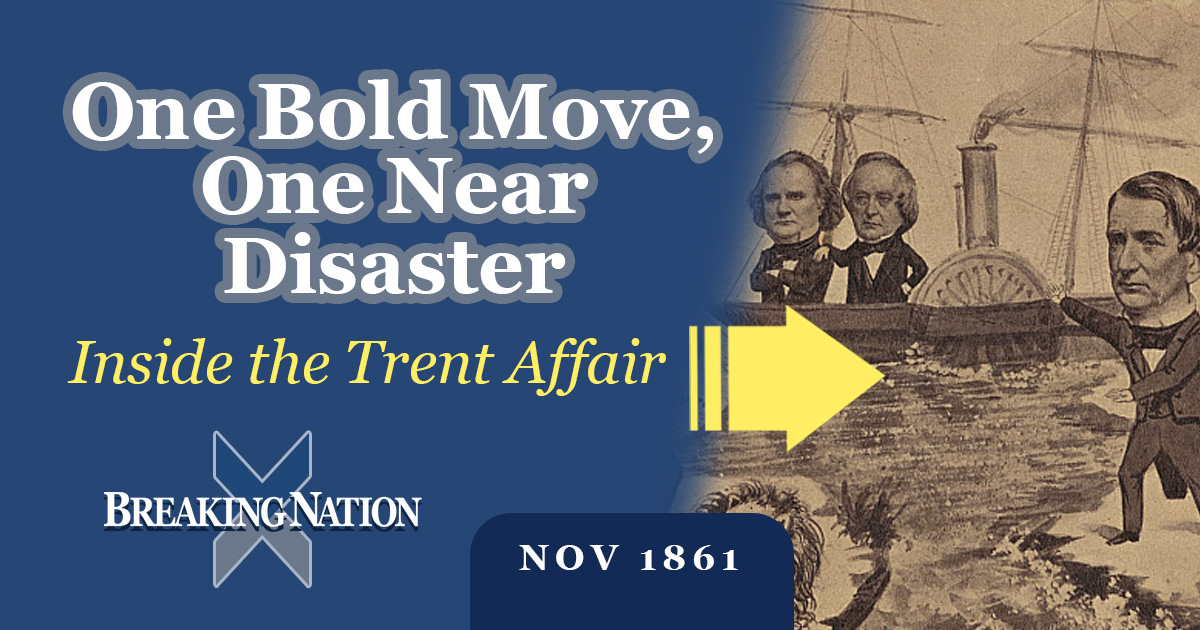The Trent Affair Uncovered: Britain's Brush with the Union

The Trent Affair, unfolding in November 1861, was one of the earliest and most dangerous diplomatic crises of the American Civil War. It began when the U.S. Navy’s Captain Charles Wilkes stopped the British mail steamer RMS Trent in the Caribbean and forcibly removed two Confederate envoys, James Mason and John Slidell, who were bound for Europe to seek diplomatic recognition for the Confederacy. What seemed at first like a bold stroke of Union assertiveness quickly spiraled into an international firestorm that nearly drew Great Britain—and possibly France—into the conflict on the side of the South.
The significance of the Trent Affair lay not in the brief confrontation at sea, but in the geopolitical shockwaves it sent through both Washington and London. For Britain, the seizure was an intolerable insult to its flag and maritime sovereignty, echoing the very same abuses that had once driven the American colonies toward independence. Newspapers in London thundered for war, troops were readied for Canada, and the Royal Navy began preparations for possible hostilities. The British government demanded a formal apology and the release of the Confederate commissioners, signaling that even a neutral power would not tolerate a breach of international law under the guise of wartime necessity.
In Washington, the incident forced Abraham Lincoln’s administration to confront a painful irony: the Union, fighting to preserve the rule of law and constitutional order, suddenly found itself accused of violating international law in the same imperial fashion it condemned. Secretary of State William H. Seward, initially defensive, quickly recognized the peril. While many Americans celebrated Wilkes as a hero—Congress even passed a resolution commending him—Lincoln and Seward understood that no military victory could outweigh the disaster of provoking Britain into alliance with the Confederacy.
Ultimately, the U.S. government defused the crisis with a calculated act of diplomacy. On December 27, 1861, Seward issued a carefully worded statement releasing Mason and Slidell, while maintaining that Wilkes had acted without official orders. The gesture preserved national honor while satisfying Britain’s demand for redress.
The Trent Affair’s broader significance lies in its demonstration of Lincoln’s foreign policy restraint and political maturity. By averting war with Britain, the administration ensured that the Union could focus its energies on defeating the Confederacy rather than fighting a global conflict. In short, the crisis was a near miss—but one that defined the limits of American boldness and the wisdom of diplomatic prudence at a perilous moment in the nation’s history.
Breaking Nation: A Civil War Podcast explores the American Civil War, its turning points, and our national memory. Discover full episodes, transcripts, and resources at www.breakingnation.com — your destination for in-depth Civil War podcast content and fresh perspectives on America’s past. Listen on Apple Podcasts, Spotify and Amazon Music.




